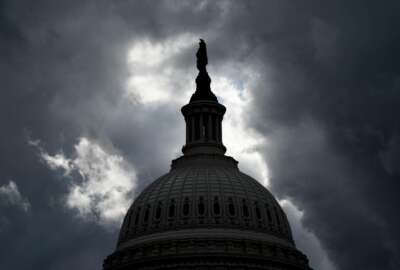
Death & Taxes: How to avoid one of them!
When many federal workers consider retirement they also look for a place with no sales or state taxes.
December and January are the two most popular months for federal and postal workers to retire. Timing retirement just right means workers can carry over (and get paid for) the maximum amount of unused sick leave. Some or all of it may be paid at the new 2018 pay raise rate. And it will be taxed in 2018 meaning many people will pay less because their income drops after retirement.
But if January 2018 is a record retirement month, the vast majority of career civil servants will keep on keeping on. Some are close to retirement, a large number have been eligible for several years. Many others will hit the magic age-service combination in the next couple of years. But whatever your date and dollar number, a key question is do you stay in place or move someplace else. Or become a snowbird spending summers in the north and winters in Florida, Arizona or Texas.
Regardless of your age, health, marital status and financial situation, as they draw closer to retirement, the thoughts of many federal workers naturally turn to taxes. As in minimizing or avoiding them wherever possible.
Because most people have less money to spend in retirement (unless they were long-time TSP investors) they want to make the most of life without a steady paycheck. Cutting costs, and minimizing taxes, is one way to do it.
Years ago a friend who worked at the General Services Administration announced he was going to retire. No surprise there. He had worked long and hard and deserved a break. The surprise was where he planned to retire: Washington state, just across the Columbia River and near to Portland, which is in Oregon. He wasn’t an outdoor type by any stretch of the imagination. Not a fisherman. Didn’t hike to do any kind of exercise. And no family (which could be a plus) in the Northwest. So why there? Why not stay in Annandale, Va.? Short answer: Taxes!!!
Washington did not have a state income tax. Oregon did not have a sales tax. So he would live in one place and shop—for groceries, clothes, entertainment—in another. Like some DC area people who drive to Delaware because it is A) Cool, and B) No sales tax.
Nine states have no personal income taxes. They are Alaska, Florida, Nevada, New Hampshire, South Dakota, Tennessee, Texas, Wyoming and Washington. For years state revenuers in California went after long-time residents who, when they moved, became residents of no-tax Nevada. California called it a “source tax” since the money they wanted to tax had been earned in the Golden State.
Nine states also exempt in whole or part taxing the total amount of civil service annuities. They include Alabama, Hawaii, Illinois, Kansas, Louisiana, Massachusetts, Mississippi, New York and Pennsylvania.
Most experts say that you shouldn’t base your retirement-residence on taxes alone. But they are or can be an important consideration. The National Association of Active and Retired Federal Employees each year updates its very useful State Tax Treatment guide. Check it out. It may help you decide whether to shelter-in-place or live in another spot. Here’s a state-by-state report.
Nearly Useless Factoid
Australia has the largest population of feral camels in the world.
Source: Wikipedia
Copyright © 2025 Federal News Network. All rights reserved. This website is not intended for users located within the European Economic Area.
Mike Causey is senior correspondent for Federal News Network and writes his daily Federal Report column on federal employees’ pay, benefits and retirement.
Follow @mcauseyWFED
Related Stories





